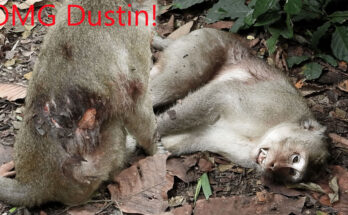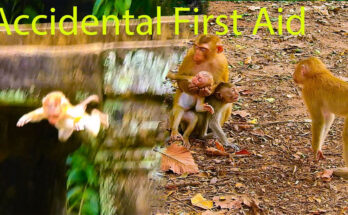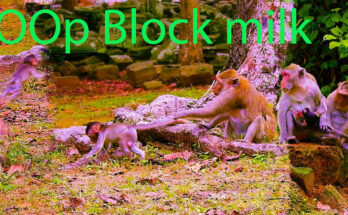Encounter with an Orphaned Baby Monkey on Yakushima Island
Yakushima Island, a UNESCO World Heritage site located off the southern coast of Japan, is famous for its ancient forests and rich biodiversity. The island’s mystical beauty, with its towering cedars, lush moss-covered trees, and mist-shrouded mountains, feels like stepping into another world. Among the creatures that call this island home is the Japanese macaque, a species of monkey known for its intelligence and social bonds. Little did I know that during my hike through Yakushima’s verdant wilderness, I would have an unforgettable encounter with one of these creatures—a tiny, orphaned baby monkey.
The Beginning of My Journey
I had come to Yakushima to immerse myself in its natural beauty, hoping to experience its famous hiking trails and witness the island’s wildlife in its untouched habitat. It was a warm morning, and I was trekking through the forested trails of Shiratani Unsuikyo Ravine, known for its ancient cedar trees, which are thousands of years old. The air was thick with the scent of pine and earth, and the soft rustling of leaves above added to the serene atmosphere.
As I made my way through the trail, I noticed a faint cry—soft but distinct—coming from somewhere deep within the underbrush. At first, I thought it was a bird or perhaps an insect, but the sound grew louder, more urgent. Curiosity led me off the main path and into the thick greenery.
A Heartbreaking Discovery
After a few moments of searching, I stumbled upon a heartbreaking sight. There, nestled at the base of a moss-covered cedar tree, was a tiny baby macaque. His fur was a pale brown, still soft and fuzzy, and his tiny hands were clinging to a fallen branch as he sat on the forest floor. His eyes, wide and fearful, darted around, scanning the surroundings.
The baby was alone.
A sharp pang of sympathy struck me. Macaques are social animals, and babies rarely wander away from their mothers, especially at such a young age. This baby, however, was left behind, abandoned or separated from his troop. His cries were soft but desperate, and his small body trembled from the chill of the morning air.
Without a mother to care for him, the baby was vulnerable to predators, the elements, and the dangers of the forest. His weak cries seemed to echo the deep loneliness he was experiencing. I crouched down, keeping my distance, not wanting to frighten him. His tiny face twisted in confusion, clearly searching for his mother or any signs of life that could offer him comfort.
A Difficult Decision
My first instinct was to help. I wanted to scoop the baby up and take him to safety, to provide him warmth and protection. But as much as I felt for him, I knew I had to respect the natural order of things. Taking him with me could potentially harm him more than leaving him behind. The forests of Yakushima are wild, and animals, especially babies, have a much better chance of survival if they remain in their natural habitat, even if they are orphaned.
I knew that the troop could be nearby, though perhaps out of sight, and that other macaques might return to care for him. But how long would it take? What would happen if no one came?
As I stood there in quiet contemplation, something miraculous occurred. The baby monkey’s cries softened, and he looked up at me, his fearful expression slowly shifting toward curiosity. Suddenly, a rustling noise came from above. My heart raced. Looking up into the canopy, I saw several adult macaques descending through the trees. One of them—a female—looked directly at the baby.
A Moment of Hope
The adult macaque hesitated for a moment before approaching the baby. The little one immediately responded with a tentative squeak, as if recognizing a familiar presence. The female gently extended her hand and nudged the baby toward her. For a few moments, the baby hesitated, unsure of this new figure, but then, with a sudden burst of confidence, he climbed up into her arms, clinging tightly to her fur.
The mother—or what appeared to be a mother—cautiously carried the baby back up the tree with the rest of the troop. The baby monkey, now nestled securely in the arms of his rescuer, stopped crying. It was a moment of relief and joy.
As I watched them disappear into the canopy, I felt a wave of relief wash over me. Nature had intervened in a way that was beyond my control but far more powerful than anything I could have done. The troop had returned for the orphaned baby, giving him a second chance at life.
A Bittersweet Goodbye
With a final glance at the disappearing monkeys, I slowly made my way back to the trail. The encounter had been brief, yet profoundly moving. In that moment, I realized just how fragile life in the wild can be, but also how nature’s inherent sense of community and compassion often provides what is needed most. The baby macaque, now safe in the care of his troop, had been given a second chance.
Though the experience left me with a mixture of emotions—sadness for the baby’s earlier distress and hope for his future—it reminded me of the importance of preserving such wild places, where animals can thrive in their natural environment, unbothered by the complexities of human intervention.


